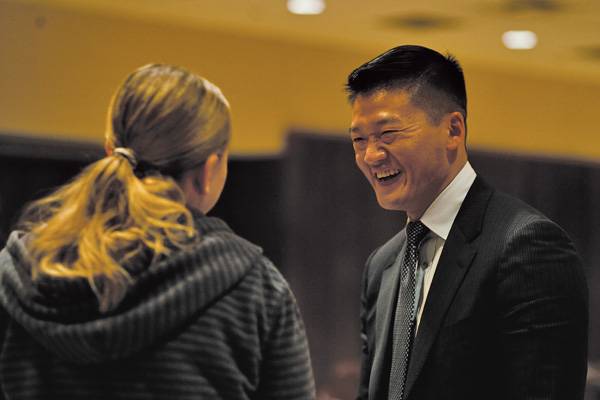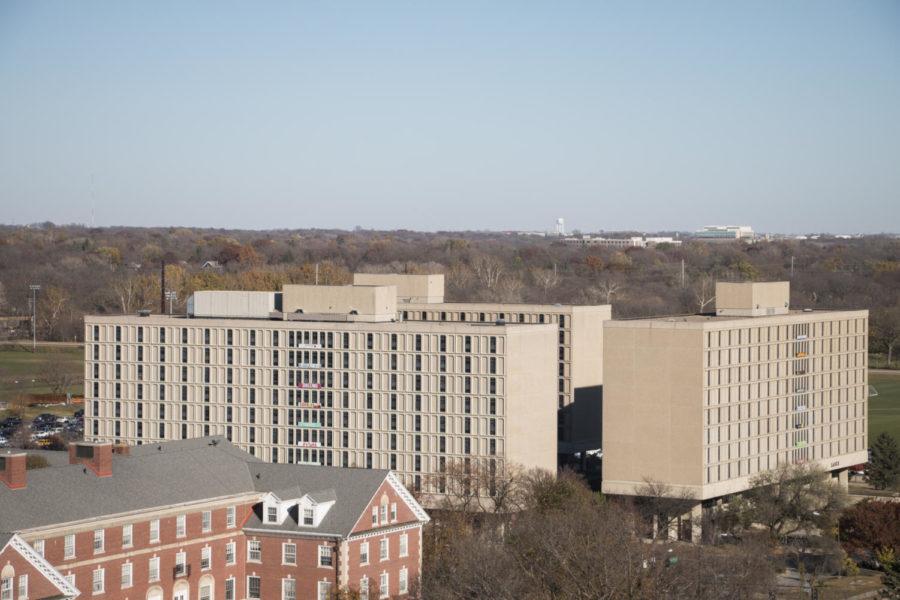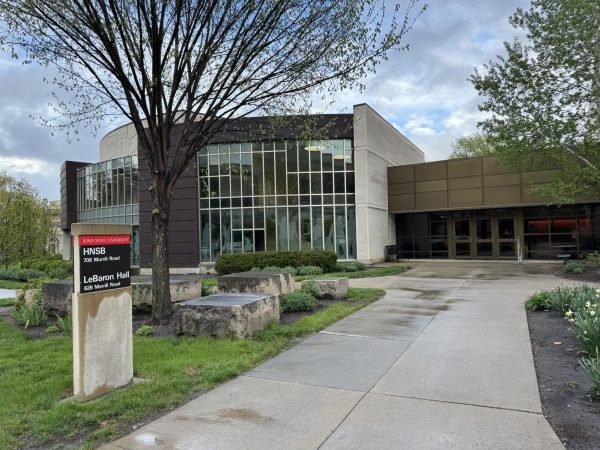Don’t ask, don’t tell

Lt Dan Choi talks to a student after his lecture, End “Don’t Ask Don’t Tell”, Tuesday, November 3, 2009 at Sun Room, Memorial Union. Photo: Karuna Ang/Iowa State Daily
November 3, 2009
Lt. Dan Choi graduated from West Point and served in the armed forces for ten years under “don’t ask, don’t tell” as a closeted gay man.
In March of this year he came out on The Rachel Maddow Show and a month later discharge proceedings were brought against him.
As a part of the lectures series at Iowa State, Choi spoke Tuesday night on ending “don’t ask, don’t tell.”
He told his story of graduating from West Point, being member of the armed forces and serving in Iraq as an Arabic translator.
“For me, as a solider, it was not a big deal,” Choi said. “I liked being in the closet.”
But Choi said West Point cadets were taught to uphold honesty and integrity.
“Before we did our first push up, we learned the honor code, which says that a cadet will not lie or tolerate those who lie,” Choi said. “And so I asked myself, ‘Why would I deceive others about who I am?’”
“Don’t ask, don’t tell” is a policy implemented under Bill Clinton’s administration that allows gays and lesbian individuals to serve in the armed forces so long as they do not reveal the fact that they are gay.
The Daily asked ISU Reserve Officers’ Training Corps members for their thoughts on the policy.
“It’s a law and we follow the law,” said Maj. Adam Drew, enrollment officer for the Iowa State Army ROTC. “Its not the army’s policy it’s a law. Talk to your senator, talk to your congressmen. They’re the ones that made the law.”
Beth Levine, spokesperson for state Sen. Chuck Grassley, said that, “Senator Grassley does not support reversing the ban that is currently in place.”
When asked why Grassley did not support reversal of “don’t ask, don’t tell” Levine said, “Military leaders say that it is a matter of morale, readiness and retention.”
Choi referenced the fact that “13,500 soldiers have been kicked out for telling the truth. That’s half of the surge,” Choi said.
“When you think of the cost against our soldiers and our units the cost is greater than just the individual cost,” Choi said. “Its not just the gay people that are hurt by this, the whole unit is hurt by this.”
As an Arabic linguist, Choi maintained vital communication between the Iraqi people and armed forces.
Choi said that he is one of 60 Arabic interpreters that have been kicked out the military after Sept. 11. He said the policy hurts the U.S. military’s readiness.
“Right now there are gay people in the military,” Choi said. “There are gay people in every rank. Integration is the wrong word. Integrity is the right word.”
Brad Freihoefer, coordinator of the LGBT student services office, said coming out is a difficult, complex process for anyone and that the “don’t ask, don’t tell” policy is yet another burden on lesbians and gays serving in the armed forces.
“When I work with students the thing is honesty and being open with who they are, instead of living two separate lives,” Freihoefer said. “Whether they are in the armed forces or not.”
Freihoefer said having two lives and not being able to be fully honest with others does not uphold the values of honesty and integrity.
“It’s important for people to be who they are no matter what the case is, gay straight or otherwise,” Freihoefer said. “They don’t have to live this kind of double life. “I think it really puts a burden where a burden doesn’t need to be.”
Warren Blumenfeld, assistant professor in curriculum and instruction, said that “don’t ask, don’t tell” is another example of discrimination in American society.
“My issue is that we don’t make laws to protect the dominant group from their own fear, we make them to be equitable,” Blumenfeld said.
“Any time we don’t challenge a discriminating policy, we as individuals or institutions condone such polices.” Blumenfeld said. “Ignorance is not bliss. Discrimination continues when people claim ignorance.”
Although he said he supports ROTC and the valuable scholarship it provides to students, Blumenfeld encourages the university to discuss national issues like “don’t ask, don’t tell.”
“The point I want to make is we as a university need to continually challenge the policies on a national level so that we can have these events come more in line with our own nondiscrimination policy,” Blumenfeld explained. “There is no such thing as an innocent bystander. If we don’t speak up we condone the oppression. That’s basically it.”
















